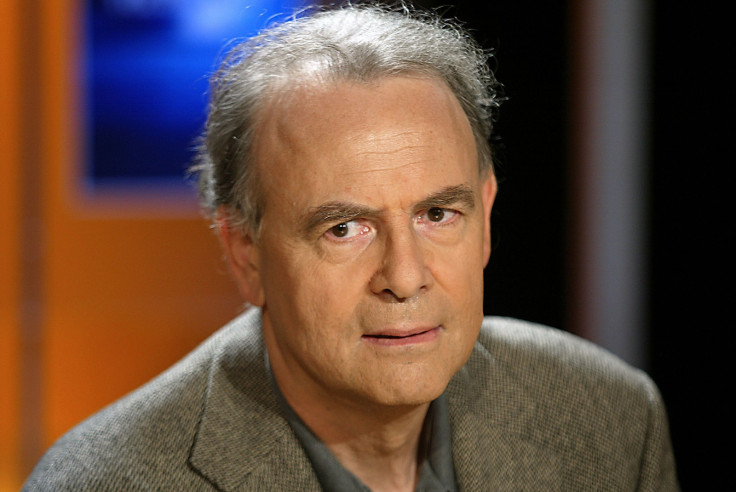French Author Patrick Modiano Awarded Nobel Prize in Literature 2014

French Author Patrick Modiano has been awarded the Nobel Prize in Literature 2014.
The author, who was introduced to the literary world by writer Raymond Queneau at school, beat Ngugi wa Thiong'o, Haruki Murakami, Svetlana Alexievich and Philip Roth, who were the bookies' favourites to take the prestigious prize.
Peter Englund, permanent secretary of the Swedish Academy, said: "Modiano is a French author who was born in France [in] 1945, he has written some 30 different books, mainly novels, but also a number of childrens' books, movie scripts, but is mainly known for his novels. which are very very specific.
"They are small books, 130, 150 pages, which are always variations of the same theme - memory, loss, identity, seeking. Those are his important themes: memory, identity, and time. He is a well known name in France but pretty well not anywhere else.
"He has been translated into Swedish. More into Swedish than English, but well known and read in France."
A statistic released before the announcement by the Nobel teams revealed the prize has previously been won by 76 prose writers, 33 poets, 14 drama writers, three philosophy/essay writers and two historians.
This sparked rumours that the 2014 prize could be claimed by Ngugi, the 76-year-old Kenyan playwright, or Irvine, professor of English at the University of California.
Modiano published his first novel, La Place de l'Étoile, in 1968, after reading the manuscript to Queneau.
In 1973 he co-wrote the screenplay of Lacombe Lucien, directed by Louis Malle, which tells the story of a boy in the French Gestapo during the German occupation of France in World War II.
Other notable works of literature include Rue des Boutiques Obscures (Missing Person), his 1996 novel Du Plus Loin de l'Oubli (Out Of The Dark) and Dora Bruder, published in 1997.
Englund added: "I can recommend Missing Person. He is very fnd of the detective genre and he plays with it. It is a story about a detective who has lost his memory and his final case is finding out who he really is, he is tracing his own steps through history to find out who he is."
© Copyright IBTimes 2025. All rights reserved.






















